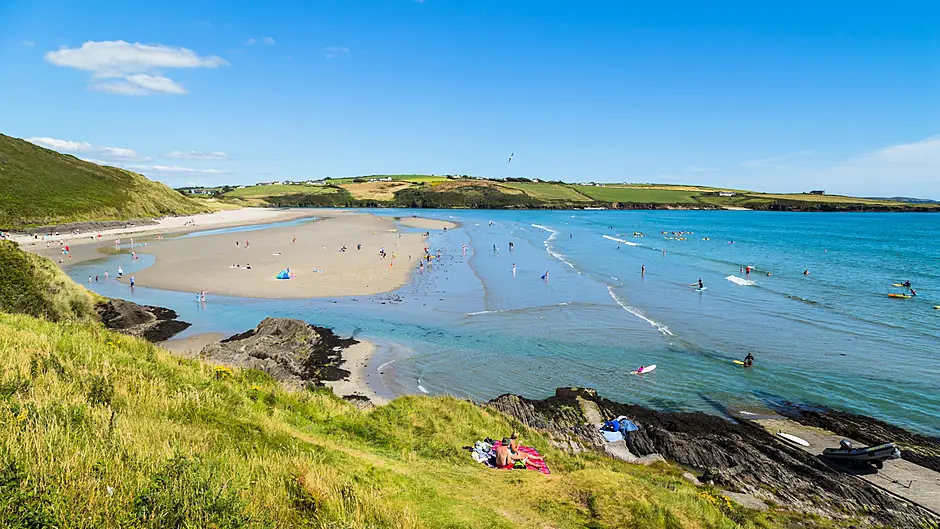BY JACKIE KEOGH AND
KIERAN O’MAHONY
A RIPTIDE warning has been issued after four swimmers were rescued in two separate incidents in West Cork at the weekend.
In Red Strand, a West Cork couple, who went for their first swim of the season on Sunday afternoon, got caught in a riptide and were rescued by a local woman. Meanwhile, a lifeguard and Inchydoney lifeboat came to the assistance of two people who also got into difficulty on the same afternoon at Inchydoney.
The lifeboat operator pulled the man and woman into the boat and brought them safely ashore onto Inchydoney’s eastern beach.
It was the lifeguard who initially spotted the two people in difficulty at Inchydoney, but at Red Strand, where there is no lifeguard service, it was Clonakilty woman Carol Sheeran who heard the couple shouting for help and was able to get a buoyancy aid to them.
The Inchydoney swimmers were rescued last Sunday afternoon after a lifeguard noticed they were drifting out to sea. The alarm was raised at 4.40pm when a lifeguard on duty observed four people entering the water off the eastern side of the beach, where there was no safe swimming zone. They used a whistle to warn them. ‘Two of the group who were in waist deep water began to come ashore but the other two people, a man and woman, were further out in deeper water about 100m off the beach and were drifting further out. They indicated they were in distress,’ said a spokesperson for Inchydoney Inshore Lifeboat.
A lifeguard on a rescue board reached the two and told them to grab onto the board. ‘The lifeboat arrived alongside and in difficult conditions pulled the casualties into the boat. They were later brought to the lifeguard station but neither needed medical attention.’
The RNLI have issued a statement advising people on how to survive a riptide, or current. The RNLI said a swimmer should never attempt to swim against it or they’ll become exhausted. ‘If you can stand, wade don’t swim,’ said the spokesperson. ‘If you can, swim parallel to the shore until free of the rip and then head for shore.
‘If you are unable to swim parallel to shore, you should float, with your head tilted back and ears submerged. Relax and try to breathe normally,’ she advised, ‘and move your hands to help you stay afloat. It’s okay if your legs sink, we all float differently, but spread your arms and legs to improve stability and, when calm, raise your hand and shout for help.’
The RNLI warns that ‘rips’ are strong currents running out to sea that can quickly drag people away from the shallows of the shoreline and out to deeper water.
They tend to flow at 1 to 2 mph but can reach 4 to 5 mph, which is faster than an Olympic swimmer.
They can be difficult to spot, but sometimes appear as a channel of flat, darker water surrounded by churning, choppy water on the sea’s surface – so may be confused as a safe swimming spot.









